By Jenna Harvey
It is morning rush hour in Bangkok and moto-taxi drivers ferry hurried commuters through stalled traffic. In Mexico City, shoe shiners line up outside office buildings, offering their services to professionals on their way to work. In Lima, parents walking their children to school stop to purchase a newspaper from a local vendor.
Urban informal workers – moto-taxi drivers, shoe shiners, street and market vendors, waste pickers, construction workers, and a multitude of others – make modern cities run. Despite this, these workers face daily challenges – even regular harassment, eviction, and legal action – that make their daily pursuit to earn a living unnecessarily difficult.
But there are strategies and tactics organizations of informal workers can use to build municipal relationships, voice their needs in urban dialogues, and challenge authorities
where necessary.
WIEGO’s newly expanded Focal Cities initiative seeks to more intensely apply our existing knowledge and know-how to further empower membership-based organizations (MBOs) of informal workers. Our aim is to secure their place as contributing members of urban economic and social ecosystems across the Global South.
We are focusing on six select cities: Lima, Peru; Accra, Ghana; Bangkok, Thailand; Dakar, Senegal; Delhi, India; and Mexico City, Mexico. The Focal Cities work began in Lima in 2010, where we started with advocacy efforts for more equitable policies, social benefits, and sustained processes for dialogue with city and national authorities. We have since added the five other urban centres – all places where WIEGO has already been working, has experienced team members on the ground and established relationships with MBOs and
other allies.
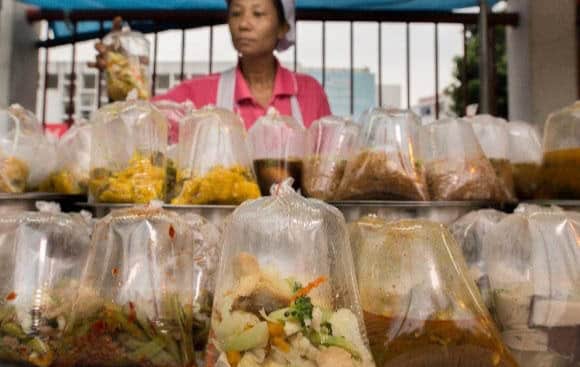 Thiphaporn Tongkham, a street vendor, is a vital part of the Bangkok neighbourhood where she sells affordable, home-cooked food. Thiphaporn spends long hours vending, preparing the food for sale, washing up after the day is finished, and buying all the necessary materials. Photo: Paula Bronstein/Getty Images Reportage
Thiphaporn Tongkham, a street vendor, is a vital part of the Bangkok neighbourhood where she sells affordable, home-cooked food. Thiphaporn spends long hours vending, preparing the food for sale, washing up after the day is finished, and buying all the necessary materials. Photo: Paula Bronstein/Getty Images Reportage
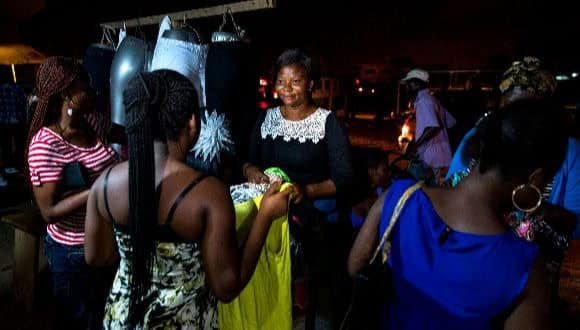 Secondhand clothing vendor Gladys Asare negotiates prices for her goods with customers at her stall in Kwame Nkrumah Circle Market in Accra. During both day and night, Kwame Nkrumah Circle is a thriving commercial centre and transport hub. During the evening, professionals on their way home from work are the vendors' target customers. Photo taken August 13, 2015 in Accra, Ghana. Photo by Jonathan Torgovnik/Getty Images Reportage
Secondhand clothing vendor Gladys Asare negotiates prices for her goods with customers at her stall in Kwame Nkrumah Circle Market in Accra. During both day and night, Kwame Nkrumah Circle is a thriving commercial centre and transport hub. During the evening, professionals on their way home from work are the vendors' target customers. Photo taken August 13, 2015 in Accra, Ghana. Photo by Jonathan Torgovnik/Getty Images Reportage
Our approach: Organize, Empower, Demonstrate, Share
The Focal Cities approach involves building the capacity of membership-based organizations (MBOs) of informal workers to engage with public officials in pursuit of mutual understanding and practical and policy changes. The work in each city takes a different form depending on the political context, MBO priorities, and stages of development. However, a set of common strategies are employed across the six cities where WIEGO
works, including:
Capacity-building and training: A core component of WIEGO’s Focal Cities work involves training with informal worker leaders and their organizations in areas such as policy advocacy, communications and negotiation to support them in raising awareness of their work and advocating for their needs. Recent training initiatives include a collective bargaining and negotiations training session held in Bangkok with the cross-sector Federation of Informal Workers (FIT), and a workshop in Mexico City on human rights and waste picking. In 2018, new trainings will focus on the defense of rights through administrative law, occupational health and safety, and women’s leadership within MBOs, among others.
Policy dialogues: In each Focal City, WIEGO works to support MBOs in engaging in dialogue and negotiations with city and national public officials to allow workers to share their experiences, advocate for their demands, and provide input on laws, regulations, and social policy. Often these dialogues are organized in the context of municipal or national elections, as will be the case in Mexico City and Lima in 2018. In addition to political dialogues, mesas, or periodic roundtable discussions, have been organized to bring together workers and officials to exchange on specific topics in a sustained way. For example, this year in Dakar, mesas will be held on social protection, legal frameworks, and taxation.
Knowledge sharing and exchange: The Focal Cities approach aims to connect MBOs both within and across cities to increase awareness about promising practices, and to link workers up with networks of support and build solidarity. For example, within cities, we have worked to bring together informal workers across occupational sectors to engage around shared experiences and priorities and to create common platforms of demands for advocacy. We have also organized regional exchanges – in 2017 the Federation of Informal Workers (FIT) of Thailand, accompanied by Thai city officials, traveled to the Self-Employed Women’s Association of India to learn about inclusive urban development strategies.
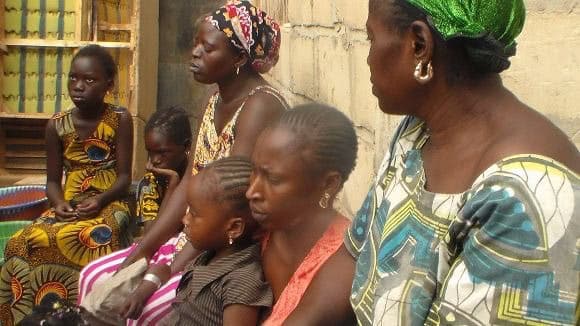 Domestic workers meet in Dakar, Senegal. Photo: A. Sourmare
Domestic workers meet in Dakar, Senegal. Photo: A. Sourmare
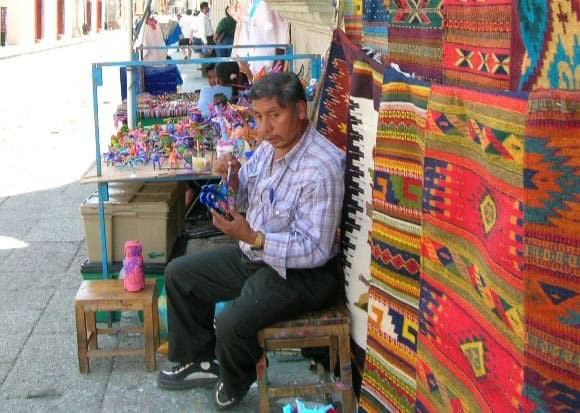 A street vendor in Mexico sells textiles on the roadside. Photo: P. Cueva
A street vendor in Mexico sells textiles on the roadside. Photo: P. Cueva
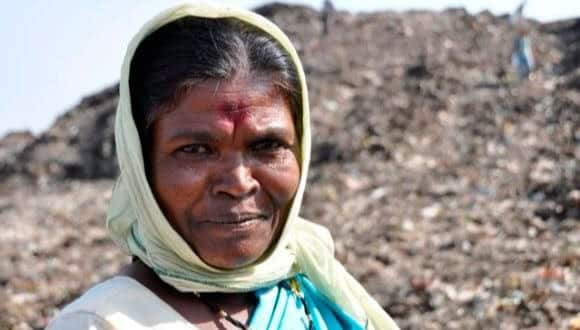 A waste picker pauses in her work collecting waste in a landfill in India. Photo: Julian Luckham
A waste picker pauses in her work collecting waste in a landfill in India. Photo: Julian Luckham
In addition to the activities mentioned above, in 2018, WIEGO’s Focal Cities will be spearheading new work with public awareness campaigns, action research, and new and innovative advocacy strategies.
We invite you to follow along as WIEGO applies its unique approach to these cities. We look forward to sharing our ideas, challenges, strategies, and achievements along the way.
Learn more about Focal Cities.
Sign up for our newsletter to receive regular updates about WIEGO’s work.
Top photo: Rosa Huapaya is a newspaper vendor—or canillita as they are known locally. To supply her newsstand with merchandise, she picks up the newspapers at 3:30 a.m., collates the inserts into the newspapers and heads off to her point of sale. Newspaper vendors work seven days a week throughout the year with no vacation or holidays. Her organization is affiliated to Peru’s Federation of Newspapers, Magazines, and Lottery Vendors (Federación Nacional de Vendedores de Diarios, Revistas y Loterías del Perú, FENVENDRELP). Photo: Juan Arredondo/Reportage by Getty Images
.jpg)